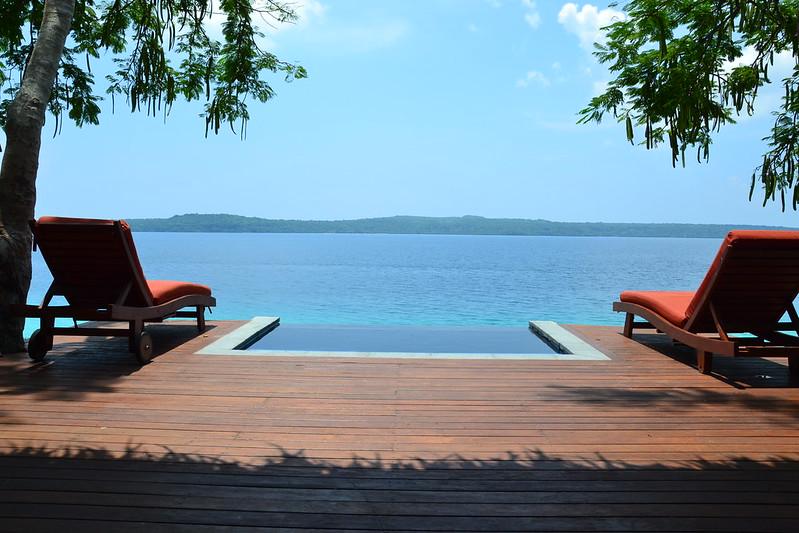This is not the time for Australia to reduce its aid to PNG and the South Pacific
Posted By Jeffrey Wall on July 28, 2020 @ 11:15

As the federal government prepares to hand down its pandemic-delayed national budget in October, it will be looking for areas in which spending can be cut.
When the pressure’s been on in the past, the international development assistance program has been an easy target and, given the significant belt tightening and staff cuts in the Department of Foreign Affairs and Trade, one can assume that it’s again under review.
Despite the undoubted pressures at home in the wake of Covid-19, it’s to be hoped that the government accepts the need to maintain our development assistance to Papua New Guinea and the South Pacific. Revise and restructure it most definitely, but any significant reduction would send a terrible message to our neighbours, virtually all of whom are struggling fiscally and economically, as well as socially.
The extent of the crisis varies from country to country and, so far, Covid-19 infection rates have been low in the South Pacific. But lockdowns, travel bans and related factors are having a devastating effect.
Of primary concern are our closest neighbours, Papua New Guinea, Vanuatu, Solomon Islands and Fiji, but we also have to look at the impact on other small regional nations such as Tonga, Samoa, New Caledonia and the Cook Islands.
At over $1 billion, our total development assistance to the South Pacific is a significant part of our national budget. But there are real non-fiscal reasons why it must be protected, at least for the current financial year.
The first is the dire economic and social conditions in our key neighbours. Travel between Australia and these countries is off the agenda for this year, if not much of next year.
Tourism is vital to Fiji’s economy and very important to Vanuatu, Samoa and Tonga. If travel between these countries and Australia and New Zealand continues to be barred, the consequences for their tourism and business sectors will be truly horrendous.
Our aid program to the smaller South Pacific nations needs urgent revision to help industries that are directly affected by the virus and Australia’s border closures. Australian investment in the tourism, hospitality and service industries in these countries is not insignificant, and our assistance will help both our own investors and the thousands of people they employ throughout the region.
The needs of PNG and Solomon Islands are less tourism related. There are 5,000 Australian businesses operating directly and indirectly in PNG, and many hundreds more in Solomon Islands, the Cook Islands, Samoa and Tonga. Most, if not all, will be struggling to survive and it will get worse before it gets better.
The federal budget is still three months away, which is enough time for DFAT and other government agencies to engage with Australian businesses operating in the region and discuss what practical and reasonable support can be given to them and to their employees to sustain their operations for as long as is necessary.
The tight restrictions on travel will make it difficult to maintain our existing development assistance programs at least for the balance of this financial year. Many of those programs relate to health, education and social welfare.
That aid money should not be dropped or deferred. It should be redirected in an innovative way.
One option which should be urgently examined is to expand the seasonal worker program in our agricultural sector. With appropriate quarantine systems in place, the program could be stepped up at a time when Australian farmers need workers. We can forget about European backpackers picking fruit and doing other work in rural communities for at least the next year.
The relatively low virus rates among our South Pacific neighbours ought to enable men and women from those nations to fill the gaps in our workforce. Most will return some of their income to their families, which will help ease the desperate economic circumstances most now face.
This program will only work with substantial federal government funding and management and the involvement of the states and territories. It might be just a short-term measure, but it would enhance our people-to-people engagement in the region—and that must be the heart and soul of our aid program.
Support for the private sector in our regional neighbours through our development assistance program needs to be maintained at least at current levels until the pandemic’s impact diminishes. That is many months, if not years, away.
The other reason we must maintain our regional development assistance is that, if we don’t, the People’s Republic of China will happily step into any gaps we leave. China is already increasing its aid in the region, as local media has noted. Any impression that we’re reducing our regional engagement will play into China hands.
We need to assure the people in our region that we are not neglecting them despite our own massive fiscal and economic challenges.
A targeted development assistance program, focused even more strongly on our people-to-people and business-to-business engagement, is surely what Australia needs today and as far as we can see into the future.
Article printed from The Strategist: https://aspistrategist.ru
URL to article: /this-is-not-the-time-for-australia-to-reduce-its-aid-to-png-and-the-south-pacific/
Click here to print.